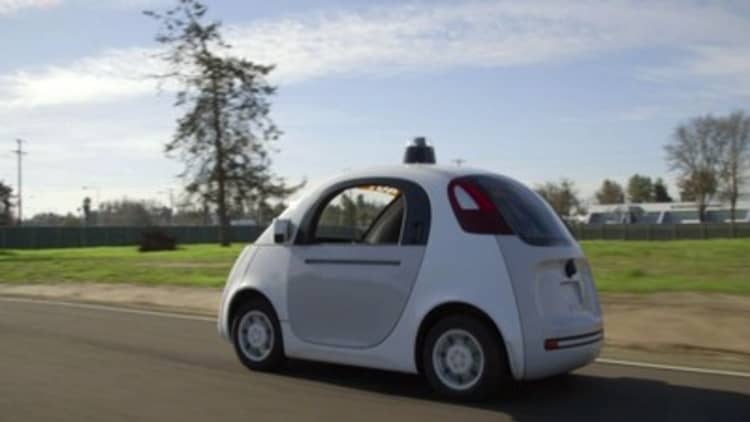
As companies rush to develop semi and fully autonomous-drive vehicles, two questions remain at the heart of the debate over the technology: How many people want their car to do the driving and how much are they willing to pay for it?
A new survey says many people, especially women, do not like the idea of their car making the decisions about steering, accelerating and braking. It also found that if technology is going to cost an additional $5,000 to $10,000, as many in the industry have predicted, interest in the technology is tepid at best.
The NerdWallet survey of more than 1,000 people found just 37 percent of the women questioned expressed interest in owning a self-driving car. By comparison, half of the men surveyed showed a desire to learn more about autonomous-drive vehicles.
Read MoreWatch out for these 7 car-buying pitfalls
Why the lack of enthusiasm?
The survey found 55 percent of the women cited safety as a big potential drawback with the technology, compared with 37 percent for the men asked the same question.
Among other findings:
- 50 percent would not pay extra for autonomous-drive technology.
- 49 percent are not interested in owning an autonomous-drive vehicles.
- 46 percent think driverless cars will not be safe.
- 36 percent say nothing appeals to them about a driverless car.

The poll surveyed 1,028 people on May 12. Its margin of error is 4 percentage points.
The findings, while interesting fodder for discussion, won't slow development of autonomous drive technology. Several automakers, including General Motors, Audi, Mercedes-Benz, Nissan and Tesla, have either shown prototypes of semi-autonomous vehicles or announced they are developing self-driving cars.
Many of the semi-autonomous vehicles are expected to go on sale by the end of 2017.
Big questions remain over whether regulators are ready for the technology and whether they think it will curb or encourage distracted driving.
Read MoreGoogle to release monthly data on self-driving car accidents
The lack of enthusiasm for autonomous drive vehicles may simply reflect a lack of awareness about the technology.
It is reminiscent of surveys in the late '80s and early '90s when many people had reservations about airbags in vehicles. A decade later, many people who had seen the benefits of airbags changed their opinions. Today, airbags are mandatory in all vehicles.
Questions? Comments? BehindTheWheel@cnbc.com.


